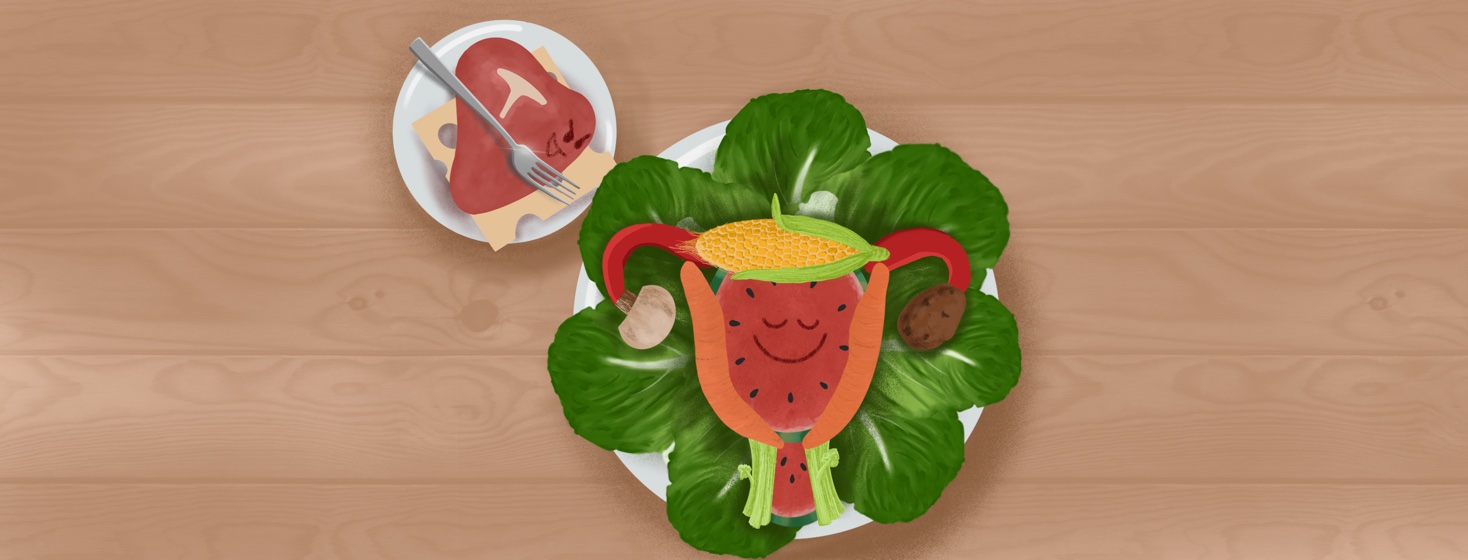How a Vegan Diet Affects My Endometriosis
Three months ago, I watched a 2014 documentary called Unsupersize Me. In it, Juan-Carlos Asse, owner of Zen Fitness in Gainesville, Florida, teaches a woman named Tracy Ryan how to eat vegan, and over the course of their journey together, not only does she lose more than 200 pounds, but her eyesight improves.
Seeing that a change in diet affected more than just Ryan’s weight led me down a rabbit hole of research. When I came across several articles mentioning that going vegan can help regulate hormones and alleviate endometriosis symptoms, I figured I would give it a try.
Was meat triggering my endo symptoms?
Prior to this, I had been eating meat daily - pretty much with every meal.
This past Spring, a friend and I wanted to curtail our snacking, and, together, decided to do the Whole 30 diet. That eating program focuses on whole foods, including a lot of meat. I lost a few pounds, but my endometriosis had returned with a vengeance. I was eating bun-less hamburgers, turkey meatballs with spaghetti squash, and a host of other foods that I thought were ‘healthy’.
But the term ‘healthy’ is so subjective. Being healthy is more than just losing weight. If food is medicine, then it makes sense to consider eating in a way that is tailored to our individual concerns.
For me, the spotting in between periods was annoying, to say the least. And I couldn’t help but wonder if eating meat and having endometriosis flare-ups was doing more damage than I could see. With all this in mind, I was curious to see if going vegan would change anything at all.
Trying-out veganism
I live in Orlando, a city where it is easy to buy and pick up vegan foods. I quickly switched from chicken breasts to seitan, a vegan meat substitute. Breakfasts are smoothies with Vega protein powder, a brand I had been relying on for years. I loaded up on lentils, chickpeas, and other plant-based proteins.
After three days of eating vegan, the spotting stopped. After a month of eating vegan, I noticed that my cycle had become regular again, and that the spotting had entirely disappeared. In the middle of month two, I was craving a burger and decided to honor that craving. Three days later, I had spotting again. Light but unmistakable.
For me, it was hard to believe that diet could have such a swift impact on my body. But seeing is believing.
The hardest parts of eating vegan
Today, the hard part isn’t sticking with a vegan diet. I find that part easy. The harder part is answering the questions. Friends who have known me for years want to know why I have gone vegan. Or, they don’t ask and just offer me bacon, burgers, and all the foods I used to eat. When I don’t have to say anything about opting out of meat, it’s easy to make other choices and bypass the meat.
But when it’s already on the plate that is handed to me, that is when I struggle. In those circumstances, I feel like I have to explain my health condition, and why eating vegan helps. Which, I know, is silly. And I also know that it is unlikely that they will understand. Moreover, they don’t need to. It is not my job to get them to understand my choices or my journey with endo. It is my job, however, to take care of this one body that I live in, and to make sure I give myself the best shot at a healthy and happy tomorrow.

Join the conversation